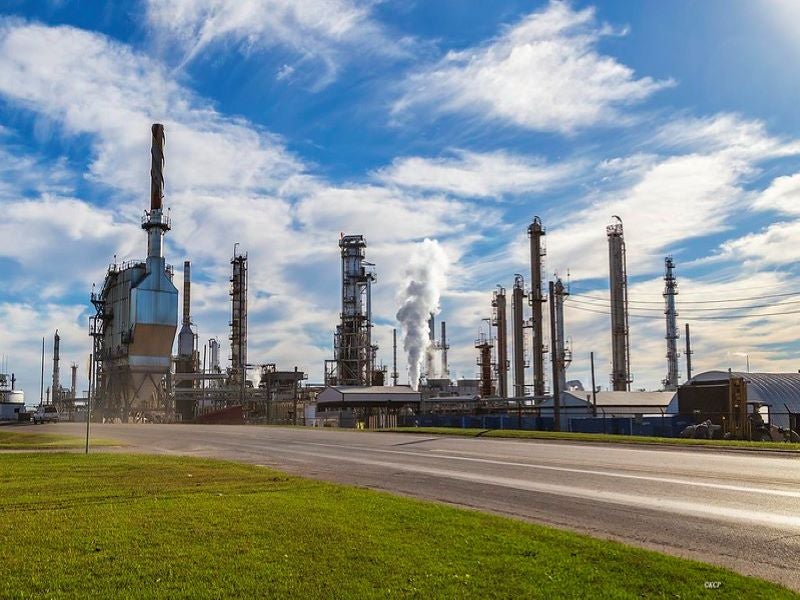The Wynnewood oil refinery located in Oklahoma, US has a crude oil processing capacity of 74,500 barrels a day (bpd), including the light sour crude oil processing capacity of 20,000bpd. It is owned and operated by Wynnewood Refining Company, a wholly-owned subsidiary of CVR Refining, which is a subsidiary of CVR Energy.
The Wynnewood oil refinery was originally built in 1923.CVR Energy took control of the refinery through the acquisition of Gary-Williams Energy Corporation in December 2011.
CVR Energy sanctioned a renewable diesel project at the Wynnewood refinery in December 2020. Scheduled for completion in July 2021, the renewable diesel project is estimated to incur an investment of approximately £81.4m ($110m).
Location
The refinery is located on a 400acre-site in Wynnewood, approximately 105km south of the Oklahoma City, in Oklahoma, US.
Refinery feedstock and products supply
The feedstock for Wynnewood refinery includes regional crude, WTI, Midland WTI, condensate, as well as heavy Canadian crude. The refinery receives crude oil through joint venture and third-party pipelines.
The petroleum products from the Wynnewood refinery are transported through pipelines, railway, and trucks to Oklahoma, as well as the neighbouring states Arkansas and Missouri. The refinery also supplies jet fuel to the US Department of Defence.
Refinery process details
The various processes carried out at the refinery include fractionation, hydrotreating, hydrocracking, reforming, solvent deasphalting, alkylation, sulphur recovery, and propane and butane recovery.
The refinery also features two crude oil distillation and vacuum towers, four hydrotreating units, and approximately 0.9 million barrels of crude oil storage facility.
The refinery produces petrol, diesel, asphalt, jet fuel, LPG, and a range of specialty products.
The recent refinery turnaround was carried out in two phases with first phase completed in November 2017 and the second phase in the first quarter of 2019. The turnaround is performed periodically, every four to five years, to inspect, refurbish, repair, and maintain the major processing units of the refinery.
Renewable diesel project
The renewable diesel project involves the conversion of the refinery’s hydrocracker unit for the production of renewable diesel.
The processing capacity of the hydrocracker will be 100 million gallons a year of washed and refined soybean oil for the production of renewable diesel and renewable naphtha.
The hydrocracker is expected to start operations by the end of June 2021. The crude oil processing capacity of the refinery is estimated to be reduced by approximately 19,000bpd, as a result of the hydrocracker conversion.
The project falls under CVR Energy’s phase one renewable diesel strategy. The refiners and importers of petroleum-based transportation fuels in the US are required to meet Renewable Volume Obligation (RVO) under the Renewable Fuel Standard (RFS) programme.
Contractors involved
Haldor Topsoe entered into an agreement with CVR Energy to provide the basic engineering, license, proprietary equipment and catalyst for the implementation of the HydroFlex™ technology to enable renewable diesel production at the Wynnewood refinery in January 2021.
KBR was contracted to provide the engineering and design services for using its Solid Acid Alkylation Technology (K-SAAT™) in the Wynnewood refinery in January 2019. The scope of the contract includes the utilisation of the technology to revamp the existing Hydrofluoric acid alkylation unit at the refinery.
The K-SAAT™ technology enables the production of alkylates by combining light olefins and isobutane using a solid catalyst, while traditional refinery alkylation technologies use strong acids.





